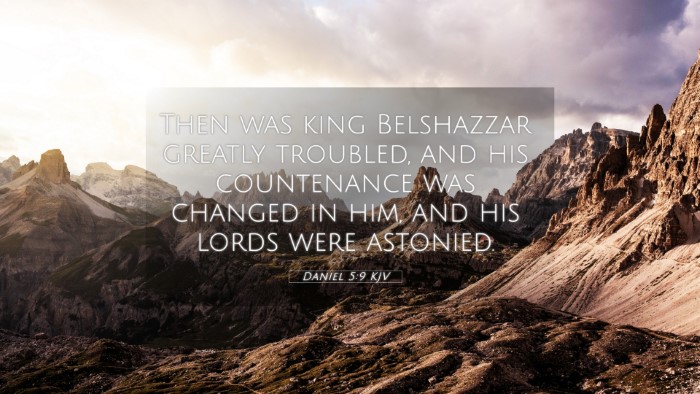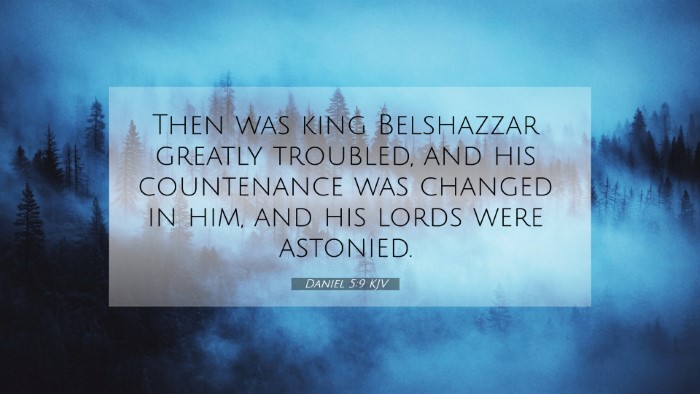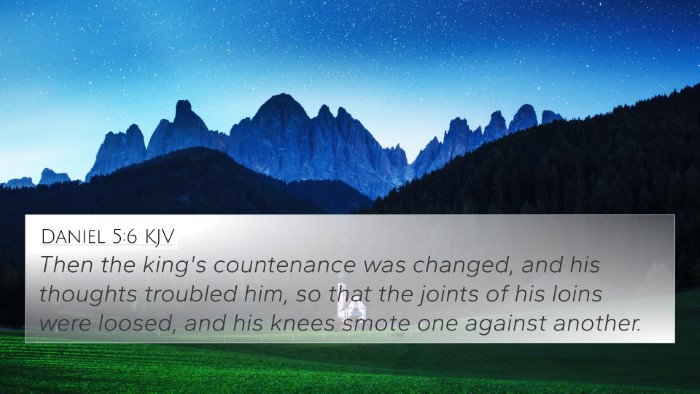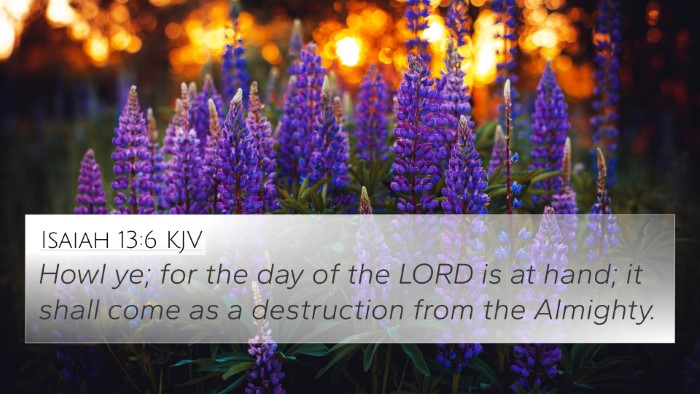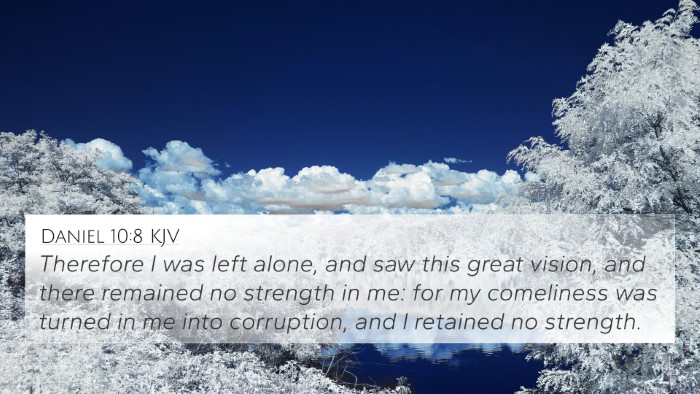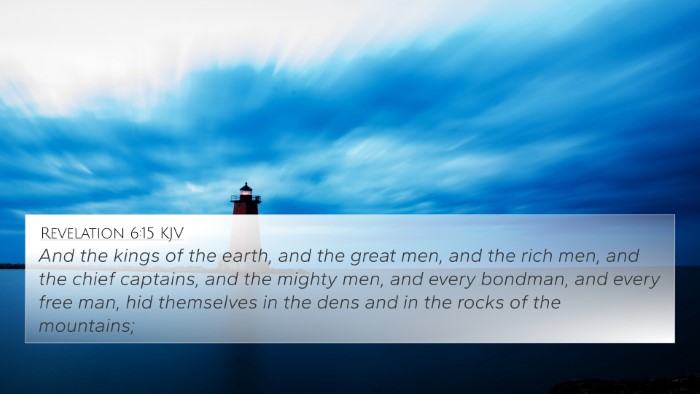Understanding Daniel 5:9
Daniel 5:9: "Then was king Belshazzar greatly troubled, and his countenance was changed in him, and his lords were astonished."
Summary of Daniel 5:9
In this verse, we observe King Belshazzar’s profound disturbance following the divine handwriting on the wall during a great feast. His inner turmoil and the astonishment of his lords reveal not only the spiritual gravity of the situation but also the consequences of defying God’s authority. This moment reflects a pivotal point in the narrative of the Babylonian Empire's impending judgment.
Insights from Public Domain Commentaries
Matthew Henry's Commentary
Henry emphasizes the fear accompanying the revelation of divine judgment. He describes how the king's visage changed due to recognition of impending doom, showcasing the profound effect divine messages have on the human psyche. The state of alarm among his lords indicates a collective awareness of the seriousness of God’s message.
Albert Barnes' Notes on the Bible
Barnes highlights that Belshazzar’s reaction showcases his moral and spiritual decline. The king, who previously indulged in secular pleasures, is now confronted with divine consequences. The astonishment of the lords reflects the significance of the event, suggesting that they, too, recognized the implications tied to the handwriting, indicating that the fear of God transcended their previous debauchery.
Adam Clarke's Commentary
Clarke points out the historical context of the event, addressing its prophetic fulfillment. He notes that the king's terror was not merely personal but emblematic of the nation's fate. The transformation of Belshazzar’s demeanor signifies a broader narrative within the scriptures about the consequences of arrogance before God.
Cross-References for Daniel 5:9
This verse has several related scriptures that can enhance understanding through cross-referencing:
- Isaiah 47:10-11: Reflects on the unexpected judgment upon Babylon.
- Jeremiah 50:1-3: A prophecy regarding Babylon's fall, highlighting the connection between Belshazzar's actions and God's judgement.
- Revelation 18:2: Discusses the fall of Babylon the Great, tying in with Belshazzar's disgrace.
- Proverbs 24:16: Provides wisdom that encourages readers to consider the fall of the wicked.
- Daniel 4:30: Offers a lesson on pride and the fall of Nebuchadnezzar that parallels Belshazzar’s fate.
- Matthew 24:42: Advises vigilance in light of divine warnings, drawing a parallel to the urgency in Belshazzar's story.
- Lamentations 1:1: Reflects on the desolation of the city of Jerusalem as a contrast to Babylon’s glory.
Thematic Connections
Belshazzar’s fear illustrates the overarching biblical theme of divine authority and human accountability. Many scriptures illustrate the consequences of disregarding God, emphasizing that judgments are inevitable:
- Deuteronomy 32:35: "Vengeance is mine, and recompense."
- Galatians 6:7-8: "A man reaps what he sows," reinforcing the principle of reward and consequence.
- Acts 5:1-11: The judgment on Ananias and Sapphira for deceit reflects similar divine justice at play.
Bible Verse Connections via Cross-Referencing
The tools for cross-referencing, including Bible concordances and reference guides, allow believers to explore thematic connections like pride, judgment, and the need for humility before God. Understanding these connections can aid in sermon preparation and personal study. Effective methods include:
- Identifying similar themes across Old and New Testaments.
- Comparative analysis of narrative and prophetic texts.
- Using Bible chain references to explore broader themes.
Conclusion
Daniel 5:9 serves as a significant reminder of the consequences of defiance against God. Through cross-referencing and thematic connections, believers can uncover deep spiritual truths that resonate through the entirety of scripture. The fear experienced by Belshazzar can prompt reflection on personal faith and responsibility towards divine commandments.

